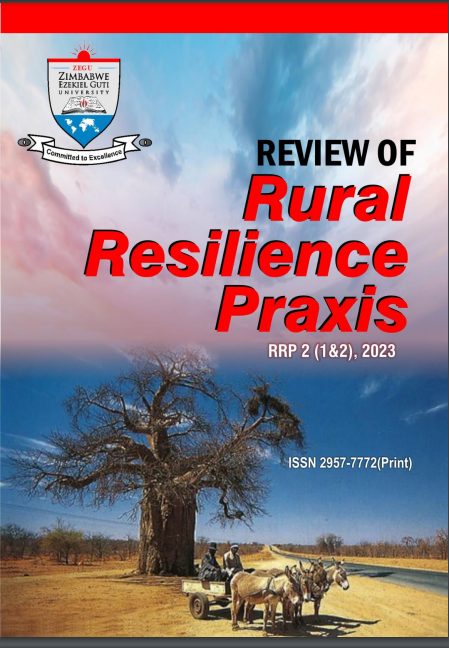The impact of the Russia-Ukraine conflict on farmer input supply in small-scale maize production in Mashonaland east province Zimbabwe
DOI:
https://doi.org/10.71458/afds2f86Keywords:
smallholder farmer, Profitability, ProductivityAbstract
The conflict between Russia and Ukraine created economic impacts felt across the whole world and has high potential to derail the economic outlook for Zimbabwe among many other countries that heavily depend on imports. Starting in early 2022, fertiliser prices rose almost 30% due to the Russian invasion of Ukraine. In this study, the effect of the RussiaUkraine conflict on the cost of maize inputs, maize productivity and profitability of maize production was evaluated in Chikomba District, located within Mashonaland East Province for the 2021-2022 and 2022- 2023 maize growing seasons. Simple random sampling was used to obtain a sample size of 385 participants derived from the conversion of a standard deviation of 0.5 at a 95% confidence level into a z-score. Questionnaires were used to obtain primary data from the participants. Benefit cost ratio (BCR) and gross margin budget analysis were used to evaluate the profitability of maize production. Out of the five explanatory variables that had a significant impact on maize productivity, AN use had the most significant effect in both seasons, 2021/22 and 2022/23, with (B=0.575, p=0.025) and (B=0544, p=0.025), respectively. Given that the Russia-Ukraine conflict period was characterised by exorbitant AN price increases that reduced affordability by many smallholder farmers across Zimbabwe, it therefore, means that the conflict has had a negative impact on maize productivity by farmers. This is due to the use of a lower fertiliser rate in response to the 57% and 71% price hike in basal and top-dressing fertiliser, respectively, lowering the yield/productivity of maize, meaning that there will be less maize to sell for covering costs and making a profit. The reduction in input levels lowered both the cost of production and the potential yield that could be produced for the market. There is need for further study aimed at developing solutions that enhance the farmers‟ resilience to the effects of conflict on input prices, productivity and profitability of maize production




